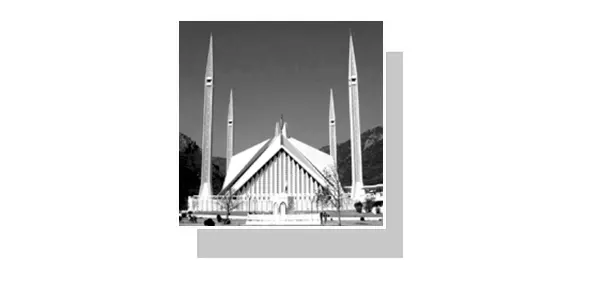ISLAMIC spiritual thought is a tradition of conceptualizing human affairs that originates with the Prophet Muhammad (570–632 CE) in seventh-century Arabia. In his lifetime Muhammad recited the Qur’an and established a precedent (Sunnah) that Muslims ever since have taken as a guide for establishing a just community. In the following centuries, Muslims spread the Islamic way of life (Deen) across the Middle East, North Africa, Southern Europe, Iran, Central Asia and India, until today approximately one and half billion people, or one-fifth of humanity, identify as Muslim. Islamic spiritual thought has consistency insofar as certain terms — such as community (Ummah), justice (‘Adl) and struggle (Jihad) — recur throughout the Qur’an and Prophetic narratives (Hadith) and subsequent spiritual texts.
Throughout its history, however, Islamic spiritual thought has incorporated modified and challenged Arab customs, Jewish law, Persian statecraft, Hellenistic philosophy, Christian theology and European and American culture. Muslims are currently debating how to reconcile (or not) Islamic notions of community and justice and struggle with concepts that first appeared in ancient Greece or medieval Christendom, such as democracy, liberty and secularism. This entry provides a background to that debate by focusing on how leading Muslim thinkers address questions of sovereignty and law or who ought to govern according to which interpretation of Sharia (divine law).
According to Ibn-e-Rushd, philosophers were best qualified to interpret scripture, tradition and law because they possessed the highest form of knowledge. Following Aristotle, he held that right and wrong were determined by nature rather than by divine command and that effective legislation required both theoretical and empirical knowledge. In the last century of Abbasid rule in Baghdad, Sufism emerged as an organized movement of fraternities, building up the infrastructure of Muslim society and shaping the Islamic identity of the polity for centuries to come; in fact, Sufism made a powerful impact on the fabric of Islamic polity, which contemporary scholarship has widely overlooked. Sufism began in the eighth and ninth centuries in Egypt, Syria, Iraq and Iran, with groups of men of piety leading an ascetic life and seeking the mystic experience of union with God.
Led by teaching masters called Shaykhs (or Pīrs in Persian), it developed its ideal of poverty (Faqr) and trust in God (Tawakkul) and spread its practice of meditative recollection (Zikr). Its radical spiritual and social patterns provoked scholars of law and theology, stirred up urban populations and challenged public order. After being eclipsed by the Shi‘i renaissance of the tenth century, Sufism reframed its path to God as a branch of the Muslim sciences during the Sunni revival under the Seljuk Turks. Leading into the caliphate of the Abbasid Nasir (1180–1225), Sufism organized itself into a large number of fraternities (Tarīqah) based on a strict order of master and disciples and marked by initiation rites and common prayer ceremonies.
Networks of Sufi centres called “lodges” (Ar Ribāt, or Pers. Khānqāh) paralleled the educational institution of the madrasa and were favored by sultanate governments. The sultans sought sacred legitimization for the secular leadership they had acquired through usurpation by securing the endorsement of Sufi Shaykhs, whom they often honored with the title of Shaykh al-Islam. Sufism was profoundly undergirded by the monist philosophy of Ibn al-‘Arabi (1165-1240), who’s pivotal concept of the “Perfect Man” (Al-Insān al-Kāmil) supplied both an ontological and ethical ideal. Yet Sufism engaged the emotions as well as the intellect, tolerating unruly wandering dervishes (Qalandar) and growing widely popular through its provocative use of Persian love poetry, especially that of Jalal al-Din al-Rumi (1207–73).
Drawing upon an image familiar to steppe populations, the Sufis advocated a “tent” of spiritual rule (Wilāya) over the entire society. The hierarchy of saints (Awliyā’) would be anchored in a spiritual pole (Qutub), which would in turn be supported by his substitutes, the “stakes” (Abdāl) and “pegs” (Awtād). Sufi institutions, often built on the outskirts of urban centres around the tombs of their founders, produced widely used manuals that disseminated the ethical and spiritual ideal of the Sufi way of life and contributed much to the Islamic identity of populations in India, Southeast Asia and sub-Saharan Africa. Sufism made its principal impact on Islamic spiritual thought and social practice during the turbulent transition from the fragmentation of the Abbasid Empire and the emergence of its three successors.
During the sultanate period of Ilkhanids, Timurids, Mamluks and Delhi Sultans, Sufi influence was spread by many orders, among them the Kubrawis in Central Asia, the Shazhilis in Egypt and North Africa and the Suhrawardis and Chishtis in the Indus and Ganges plains. The three great empires would draw religious and political strength from Sufi resources, the Ottomans from the Mevlevis and Bektashis, the Shi‘i Safavids from their Sunni Sufi roots and the Mughals from the Qadiris and Naqshbandis. All that Islam requires is that men and women strive to create a just society, where the vulnerable are treated decently. This was the bedrock of the Islamic spiritual essence to purify oneself and distribute equality and justice to society.
— The Writer is PhD in Islamic Studies from NUML Islamabad and Author of Five Books & Thirty Five Research Publications.
Email: drumarabbasi101@gmail.com










